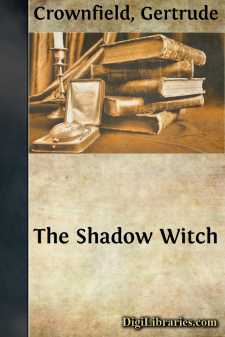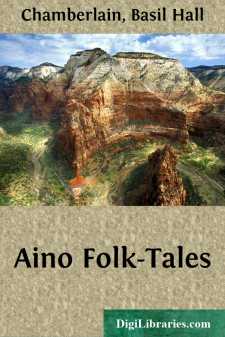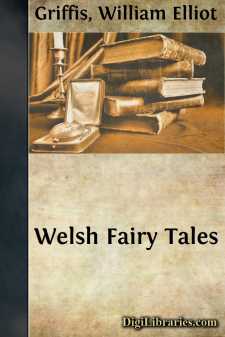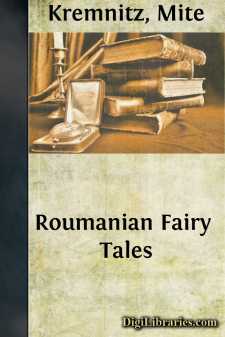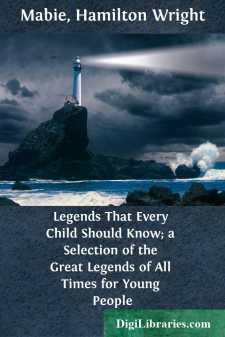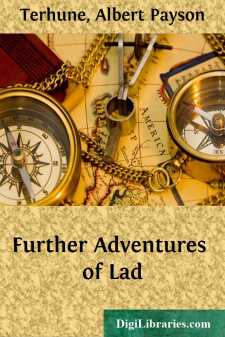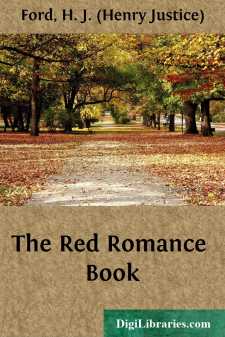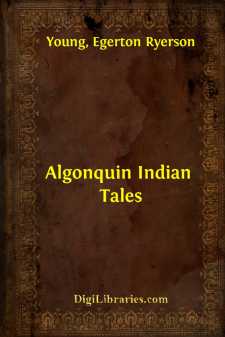Fiction
- Action & Adventure 180
- Biographical 15
- Christian 59
- Classics 6965
- Coming of Age 5
- Contemporary Women 3
- Erotica 8
- Espionage/Intrigue 12
- Fairy Tales, Folklore & Mythology
- Family Life 169
- Fantasy 117
- Gay 1
- General 596
- Ghost 32
- Historical 808
- Horror 43
- Humorous 160
- Jewish 25
- Legal 4
- Medical 22
- Mystery & Detective 315
- Political 49
- Psychological 41
- Religious 64
- Romance 159
- Sagas 11
- Science Fiction 730
- Sea Stories 113
- Short Stories (single author) 537
- Sports 10
- Suspense 1
- Technological 8
- Thrillers 2
- Urban Life 31
- Visionary & Metaphysical 1
- War & Military 173
- Westerns 199
Fairy Tales, Folklore & Mythology Books
Sort by:
PROLOGUE Come, sit with me beside the broad hearthstone and gaze into the depths of the fire when it burns low, for not among the leaping flames alone are there to be seen marvelous things. Deep hidden from your eyes at first, but plainly visible as you look closer, are countless forms of brightness and of beauty. You will find them among the shining coals that glimmer in scarlet and gold before you...
more...
The Tobacco of Harisaboqued A legend of the volcano of Canlaon on the island of Negros. It is told generally in Western Negros and Eastern Cebu. The volcano is still active, and smoke and steam rise from its crater. Long before the strange men came over the water from Spain, there lived in Negros, on the mountain of Canlaon, an old man who had great power over all the things in the earth. He was called...
more...
INTRODUCTION. Twelve hundred years ago a Chinese historian stated that "on the eastern frontier of the land of Japan there is a barrier of great mountains, beyond which is the land of the Hairy Men." These were the Aino, so named from the word in their own language signifying "man." Over most of the country of these rude and helpless indigenes the Japanese have long since spread, only a...
more...
WELSH RABBIT AND HUNTED HARES Long, long ago, there was a good saint named David, who taught the early Cymric or Welsh people better manners and many good things to eat and ways of enjoying themselves. Now the Welsh folks in speaking of their good teacher pronounced his name Tafid and affectionately Taffy, and this came to be the usual name for a person born in Wales. In our nurseries we all learned...
more...
by:
Mite Kremnitz
Stan Bolovan. nce upon a time, something happened. If it hadn't happened, it wouldn't be told. At the edge of the village, where the peasants' oxen break through the hedges and the neighbors' hogs wallow in the ground under the fences, there once stood a house. In this house lived a man, and the man had a wife; but the wife grieved all day long. "What troubles you, dear wife,...
more...
If we knew how the words in our language were made and what they have meant to successive generations of the men and women who have used them, we should have a new and very interesting kind of history to read. For words, like all other creations of man, were not deliberately manufactured to meet a need, as are the various parts of a bicycle or of an automobile; but grew gradually and slowly out of...
more...
CHAPTER I. The Coming Of Lad In the mile-away village of Hampton, there had been a veritable epidemic of burglaries—ranging from the theft of a brand-new ash-can from the steps of the Methodist chapel to the ravaging of Mrs. Blauvelt's whole lineful of clothes, on a washday dusk. Up the Valley and down it, from Tuxedo to Ridgewood, there had been a half-score robberies of a very different...
more...
I once read a book about a poor little lonely boy in a great house with a large library. This boy was pale, dull, and moping. Nobody knew what was the matter with him. But somebody tracked him into the library and saw him take a huge thick black book, half as tall as himself, out of a bookcase, and sit down and read it. The name of the book was Polexander. So he sat and sobbed over Polexander, because...
more...
THE VOYAGER OF WHULGE Like the ancient Greeks, the Siwash of the Northwest invest the unseen world with spiritual intelligence. Every tree has a soul; the forests were peopled with good and evil genii, the latter receiving oblation at the devil-dances, for it was not worth while to appease those already good; and the mountains are the home of tamanouses, or guardian spirits, that sometimes fight...
more...
CHAPTER I. The Children Carried Off by the Indians—The Feast in the Wigwam—Souwanas, the Story-teller—Nanahboozhoo, the Indian Myth—How the Wolves Stole His Dinner, and Why the Birch Tree Bark is Scarred—Why the Raccoon has Rings on His Tail. Without even knocking at the door there noiselessly entered our northern home two large, unhandsome Indians. They paid not the slightest attention to...
more...


